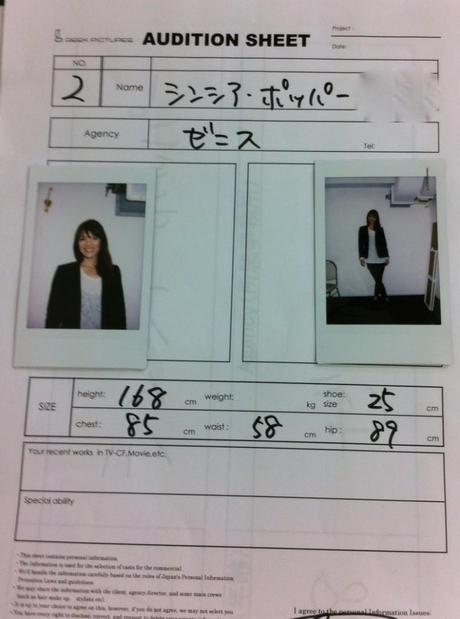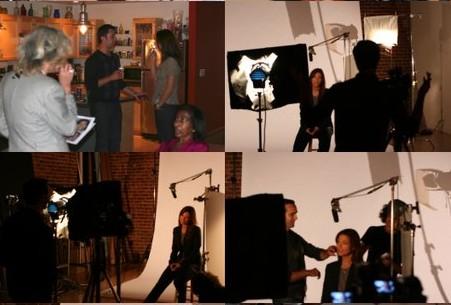First off– a huge thank you to everyone who has downloaded THE MODEL START-UP thus far. Your notes and questions are awesome… I love offering my two cents so feel free to drop me a line at my FB page. Happy to help if I can. Now… back to business.

I got an email from a young up-and-comer about a job she booked in Tokyo recently. There were a few red flags:
- She got the job by being scouted on Facebook by a dance school. No agency, no go-see.
- The rate was predictably low, but when this girl went to the job, she learned that some of the represented talent were getting paid triple what she was. (She was also specifically told by the recruiter to NOT network with fellow talent. Not stars, just talent–kind of weird!)
- She was asked to sign a contract in Japanese– and she cannot read it.
Now as a new model, this girl was doing the right thing. She was simply trying to network and get some new photos for her book. I totally get that. But that this (un)agency wanted to represent her, not giving her an English contract is a dead giveaway that they don’t specialize in foreign talent. This is a setup for exploitation. I asked her a few basic questions about why she wasn’t allowed to talk to actors on set, what the terms of her agreement were, but she had a tough time getting information from the recruiter. A bad sign– agents and bookers should be able to tell you everything you need to know about a job. In Japan, culturally generally people aren’t as forthright, but they are more than happy to give you all the information you need to make an informed choice about your work.
Whether you’re working here in Japan, or on your home turf, it’s essential you understand the basic terms you’re agreeing to. Working with reputable agents, or with photographers you know through trusted sources is so key to ensure you’re going to get proper treatment, decent working conditions, and get paid according to the agreement.

Talking about rates on set is a huge no-no. It’s like walking into your office and asking everyone with your similar job what their salaries are. It’s super unprofessional and likely will create bad blood between talent, crew, and the decision makers. Let your agents deal with the rates, and any money questions should be directed to them.
That said– in Tokyo you can be repped by multiple agents, and often those agents will submit you to the same jobs. If one agent offers you one rate, and another offers you double (for the exact same job!), you’re going to think long and hard about who you want to work with. I talk a lot more about how I deal with varying rates in the book.
Besides cash, there are a few other considerations. Often TV shoots (and some commercials) in Tokyo shoot overnight- meaning, a call time at 11pm and a wrap time around 9am the following morning. Or worse, starting at 5pm and wrapping at 2am so there’s no train to take you home. If it’s a small scale gig and you have to take a taxi or find a hotel– you have to think long and hard about these projects. If it’s worth it to you professionally, then go for it. If you’re going to fall asleep and be a wreck the next day for minimum wage… hmmmm.
What about usage? I wrote about it here... I recommend reading it and knowing the terms.
Know your contracts, understand acting and modeling terms. When you work as a model or actor– YOU are the product, the business. Protect it, and only work with those who join you in doing so. Now go gettum.


